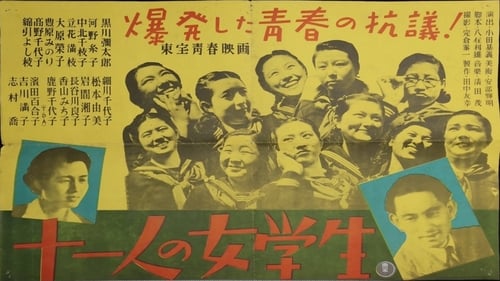
Hisako
Tora-san returns to his family home to learn that his brother-in-law cannot go to Mitsuo's (Tora-san's nephew) athletic event. Tora-san volunteers to take his place, but gets into an argument with his brother-in-law's boss and returns to the road. He meets a young woman in Niigata who, unbeknownst to him, is a popular enka singer.

Ryô is a young leopard, Maki a rhythmical wave. The barrier between a teacher and a student gives way to the passionate embrace of a man and a woman desperately in love.
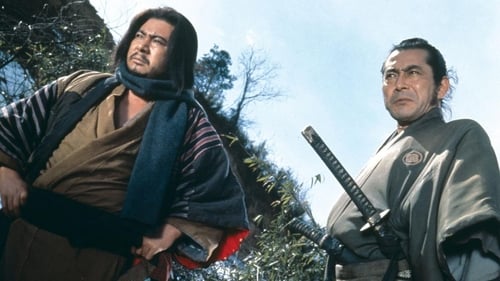
In the Edo period, a nameless ronin accepts an assignment to go to a mountain pass and wait. Near the pass he stops at an inn where a collection of characters gather, including a gang set on stealing shogunate gold that's soon to come over the pass. When the Ronin's assignment becomes clear, to help the gang, he's ordered to kill the inn's residents, including a woman he's rescued from an abusive husband. He's reluctant to murder innocent people; then he learns that the gold shipment is a trap and he's part of a double cross. How he sorts through these divided loyalties tests of his samurai honor, and perhaps of his love for a woman.

A timid salaryman is the subject of this black comedy.

During the early days of the war a young student, Makito (Kazuo Funaki), falls in love with Yuko (Mayumi Ozora), the widow of a naval officer. She, however, is living with the memories of her husband and it is her younger sister, Yumiko (Nana Ozaki), who grows fond of the student. Then, one day, a young naval officer, Tadayuki (Ken Ogata), a friend of her late husband, comes to see the widow and she becomes attracted to him. Though Makito is inspired to study for the navy, he is much upset when he learns that Yuko and Tadayuki are to marry.

Mrs. Kane
Una misteriosa isla ha sido colonizada por una extraña organización terrorista de tintes comunistas llamada Red Bamboo, que ha esclavizado a la población indígena y que se dedica a la fabricación de bombas atómicas. En esta isla vive la langosta gigante Ebirah, que se encarga de devorar a todos aquellos que intentan escapar del lugar, hasta que un rayo despierta a Godzilla, dormido casualmente en el interior de una gruta de la isla.
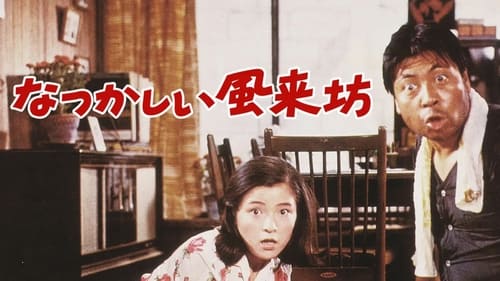
Kinuko Saotome
Saotome is a white-collar worker on the brink of a burnout who one day strikes up a friendship with Gen, a boorish drifter who approaches life one day at a time.

When an only child is struck by a car and dies, the child's mother seeks vengeance against the driver in this thrilling drama. The car was driven by the wife of a company president who is having an affair. The woman's husband manages to buy silence about the incident, but the victim's mother discovers the identity of the driver. After she secures a job in the home of the company president and his philandering spouse, the woman plans to murder the couple's son when he reaches the age of her late son.

Yoko's mother
Easily bored, but still innocent and naive countryside girl (Mako Midori) discovers partying in Tokyo is a ton of fun. Yakuza-to-be (Ichiro Araki) is an acquaintance who tries to rape her, and the typically bland but very-good-here (Hayato Tani) the first boyfriend. Director Yasuo Furuhata (his first picture) lets his camera roll in trendy clubs amongst partying youngsters in a way that could've been out of 60s England or a Nikkatsu film if it wasn't shadowed by dated 60s Toei conservatism.The resulting film is a bit confused, either a rebellious youth tale chained by moral concerns, or something conceived as a morality tale trying to break free from its chains.

Tashiro coincidentally meets his best friend Sugimoto in a bar very close to the apartment in which Sugimoto’s wayward wife is found dead. Although Tashiro is not a suspect in the police investigation, he is racked with guilt and confesses to his wife, Masako. In an effort to further relieve his tortured sense of guilt, he then confesses to Sugimoto. Neither his wife nor his friend can believe that he could have been involved.

Banjun organizes a group of con men to fleece the greedy and rich.

Ayako, a young woman from a rural fishing village, is sold by her family into a brothel when her father takes ill. There, she is quickly stripped of her innocence and illusions.
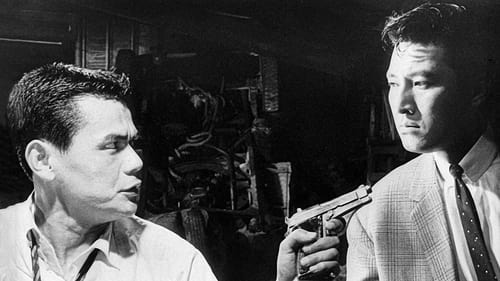
A group of criminals whose diamond heist goes wrong retreat to a WWII era bunker where tensions begin to rise.
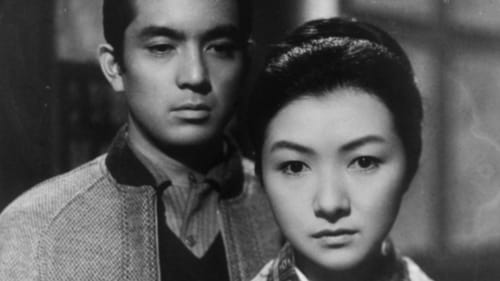
Mrs. Kaga
Reiko es viuda, su esposo Morita ha muerto en la guerra, dejándola al cargo del negocio familiar, que cada vez pierde más clientes a manos de los grandes supermercados. Koji, hermano de Morita, regresa de Tokio, aparentemetne dispuesto a echar una mano pero complicará más las cosas.

Toho-produced crime drama involving the drug trade.
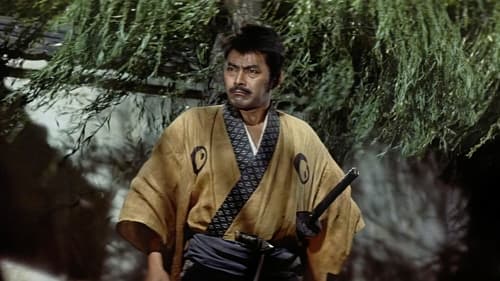
Esta impresionante historia épica ha sido a veces etiquetada como la versión japonesa de "Lo Que El Viento Se Llevó". Chusha Ichikawa personifica a un señor feudal poderoso y despiadado que lucha contra el virtuoso y joven noble, Yuzo Kayama. Ichikawa encuentra una victoria parcial cuando engaña a Kayama y lo convence de hacerse el Hara Kiri. La venganza será realizada por los cuarenta y siete samuráis de Kayama. Basada en una leyenda japonesa venerable, la historia de Chushingura ha sido filmada en varias ocasiones, pero sólo la versión de 1941 (47 Ronin) estuvo a la altura de la versión de 1962, del gran director Hiroshi Inagaki.
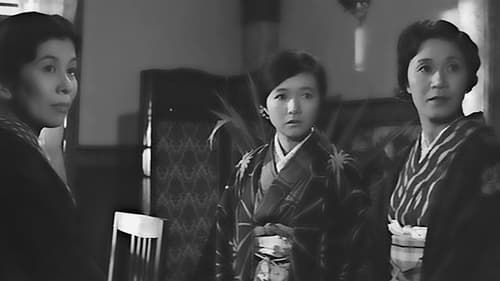
Considered one of the finest late Naruses and a model of film biography, A Wanderer’s Notebook features remarkable performances by Hideko Takamine – Phillip Lopate calls it “probably her greatest performance” – and Kinuyo Tanaka as mother and daughter living from hand to mouth in Twenties Tokyo. Based on the life and career of Fumiko Hayashi, the novelist whose work Naruse adapted to the screen several times, A Wanderer’s Notebook traces her bitter struggle for literary recognition in the first half of the twentieth century – her affairs with feckless men, the jobs she took to survive (peddler, waitress, bar maid), and her arduous, often humiliating attempts to get published in a male-dominated culture.

Sakiko, the landlady
An irresponsible salaryman works his way to the top of the corporate ladder.

Oharu
This Japanese film speculates on the events which lead the U.S. and the Soviet Union into a nuclear Armageddon.

Mineko Itami
Tobe is a small-time crook who runs a prostitution business of blonde girls, as well as sells pornographic pictures. He frequents a cafe run by two women, one of them a young widow with a son. They like him and think that he is an ordinary office worker. One day, Tobe accidentally discovers pictures of an acquaintance, Kanzaburo, with a woman and sets out to blackmail him. He soon finds out that Kanzaburo died in a train accident but things may not be what they seem
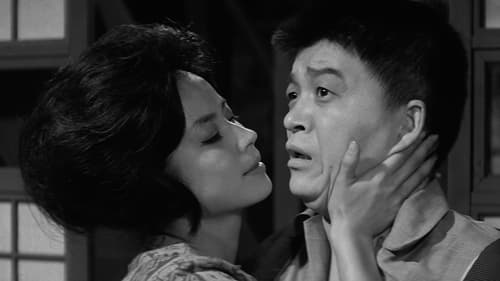
Yoshi Takagi
A fines de la década de 1950 se prohibió la prostitución en Japón y si se encontraba a una mujer ejerciendo esta profesión, se la enviaba a un reformatorio. Esta es la historia de una de estas valientes mujeres Kuniko que sale del reformatorio y trata de construir una nueva vida.

Four fishermen friends are caught up in a piracy plot.

Toshiko Furuya
In "The Other Woman" the children of a distinguished professor find that the woman they have come to regard as their racy and slightly disreputable Ginza aunt is really their mother.

The story is of two people. One is deaf, the other deaf and mute. They marry after meeting at a school reunion, and the film follows their trials and tribulations ... and joys.

Kyoku of Yae
During the raging war between the Toyotomi and Tokugawa clans, the swordsman Mohei (whose family has been completely decimated) is recruited by Toyotomi to overcome the seat of power, Osaka Castle. Mohei's daredevil skills will be put to severe tests.

Nobu
Gang of robbers quarrel about the loot, but when one of them gets killed, his younger brother seeks them out to ice them one by one.

A skilled country doctor's talents are such that he can even perform operations as difficult and novel as removing a patient's kidney for the first time in Japan. Unfortunately for him, however, his wife's addiction to gambling is of such a magnitude that he is down to selling his underwear to make money. The image sticks and he becomes known as the 'underwear doctor.' On the other hand, his successful surgery's patient is so grateful he himself wants to become a physician.
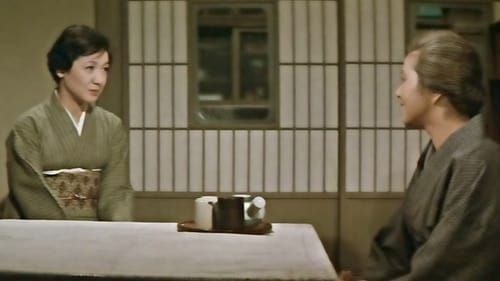
Kiku Totsuka
En una familia de clase media de Tokio, una de las hijas (Setsuko Hara) ha enviudado joven, y todos los miembros desean que vuelva a casarse. La madre es una anciana viuda que vive en una casa grande del centro de Tokio. Los hijos están deseando vender la casa, pero no saben qué hacer con su madre.

Kuniko Ishino
Suspense drama about a married salaryman whose affair with one of his co-workers is compromised when, returning from a clandestine meeting with his lover, he runs into a neighbor who is later accused of murder. Questioned by police about the neighbor, and blackmailed by his lover's neighbor, the salaryman's lies lead him on a path to destruction.

Tomoko
Keiko acaba de ver morir a su esposo y tiene que valerse por sí misma. Se convierte en patrona del bar Lilac en Tokio. Además de pagar su apartamento, se siente obligada a ayudar económicamente a su hermano, en paro y enfermo de polio. Yuri, una joven señorita de compañía que trabajaba con Keiko, se marcha tras seducir a Minobe, uno de los más ricos clientes de esta última. Sin embargo, Keiko se opone rotundamente a relacionarse con ricos patronos e insultar la memoria de su esposo, a diferencia de numerosas geishas.
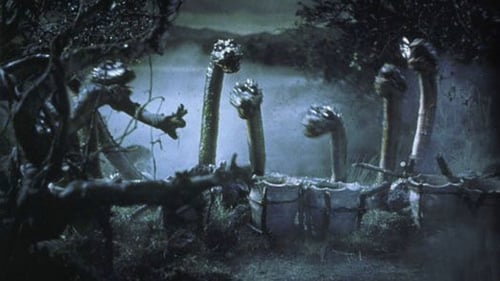
Tenazuchi
The legend of the birth of Shintoism. In Fourth Century Japan, the Emperor's son Ouso expects to succeed his father on the throne, but Otomo, the Emperor's vassal, prefers Ouso's stepbrother, and conspires to have Ouso die on a dangerous mission he has contrived. But Ouso prevails in the mission and returns to his father's castle under a new name, Prince Yamato Takeru. Otomo plots to have the Prince sent into even greater danger, but Otomo is unaware that the gods have favored the Prince and the outcome is far from what any of them expected.

When Sergeant Okubo's brother is murdered at a Japanese outpost in Northern China during the Second World War, Okubo poses as a war correspondent and seeks out his brother's killer.

(uncredited)
Edmund Rostand's play Cyrano de Bergerac, transplanted to Japan. A poet-warrior with an oversized nose (matched only by his great heart) loves a lady. But she sees him only as a friend, so he helps another man to woo her by giving him the poetry of his own heart.
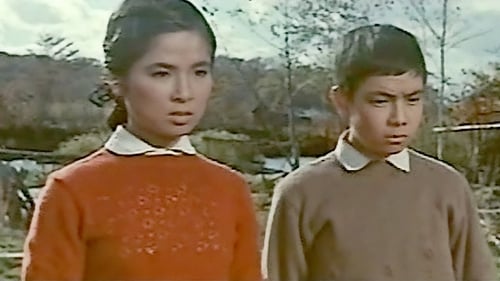
The story is about the social problems faced by Japan's indigenous Ainu, mostly centered on the reactions of the characters to their oppressed state.

Oyoshi Matsuda
An Ishiro Honda film.

Yuki
Historical drama about a sleepy-eyed ronin.

Sumiko
Anzukko (Little Peach) is the daughter of a successful writer. She turns down each one of her suitors, until she marries a beginning writer named Ryokichi. Their life quickly sinks into despair.
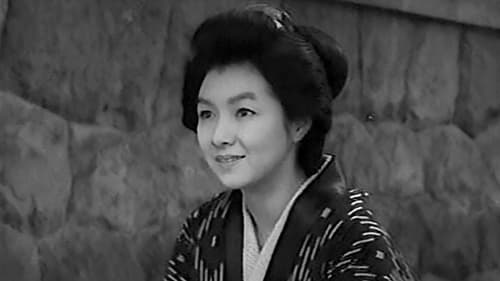
Osuzu, Oshima's older sister
A woman marries, gives birth to a stillborn child, and divorces, falls in love with a hotel-keeper, only to find herself subordinated to his drive for success, takes up with a tailor who cannot console himself with her strong personality.
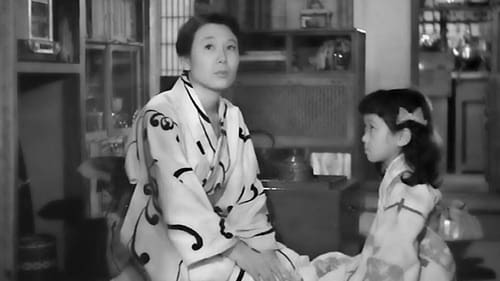
Yoneko, Otsuta's sister
Rika acaba de enviudar y está buscando trabajo. Su agencia de empleo la envía a una casa de geishas en la que necesitan a alguien que se ocupe de la limpieza y de la cocina. Conoce a Tsutayako, la patrona, quien acepta contratarla, pero se entera que la casa de geishas está retrasándose en el pago de sus facturas y que podría ponerse a la venta. (FILMAFFINITY)

With one of the busiest film industries in the world, Japan was able to submit several films into competition at the 1957 Berlin Film Festival. One of the best of these was Arashi, directed by Hiroshi Inagaki of Rickshaw Man fame. Anticipating Hollywood's Table for Five by nearly a quarter of a century, the film concerns the efforts by a recently widowed high-school teacher to raise his four children alone. Chihu Ryu is terrific as the central character, while Izumi Yukimura is even better as Ryu's eldest daughter. For reasons unknown, Arashi is often omitted from "official" lists of Inagaki's films.

Kaoru
Kiyoko (Takamine Hideko) and her husband want to open a coffee shop. She becomes increasingly close to the bank clerk (Mifune Toshiro) she's asked for a loan.

Tsuruko Higeta
The story of a professional nude model stalked by a bizarre, unknown man wearing a hideous mask.
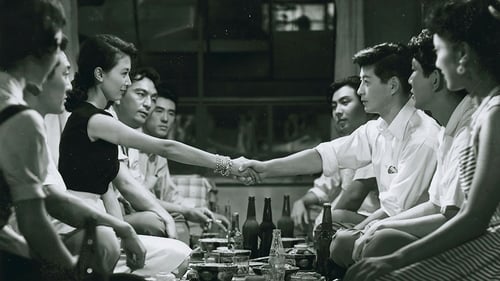
Un hombre casado de mediana edad, aburrido de la rutina cotidiana tanto en el trabajo como en su matrimonio, tiene una aventura amorosa con la hija de un colega suyo. Cuando su mujer descubre su infidelidad, tanto su vida como la de su familia quedarán completamente trastornadas.
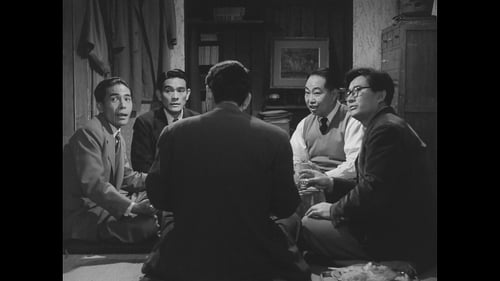
Toki Kurobayashi
A husband and wife's pet peeves and minor irritations escalate into major rifts and animosity.

Sadako Izumi
An Ishiro Honda film.

Two youths - the serious son of a Buddhist abbot and his rakish pal - quarrel over a restaurant keeper's daughter. When one of the youths die the other boy and the girl find they cannot forget him.
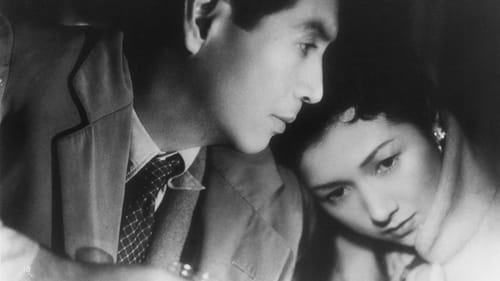
Kuniko Tomioka
Yukiko y Tomioka fueron amantes durante la II Guerra Mundial, que pasaron en el sudeste asiático. Terminado el conflicto, Yukiko vuelve a Tokio en busca de Tomioka, al que cree divorciado, pero él sigue casado. A partir de ese momento su relación alterna separaciones y reencuentros, mientras otros hombres y mujeres pasan por sus vidas. (FILMAFFINITY)

Madame
An Ishiro Honda film.
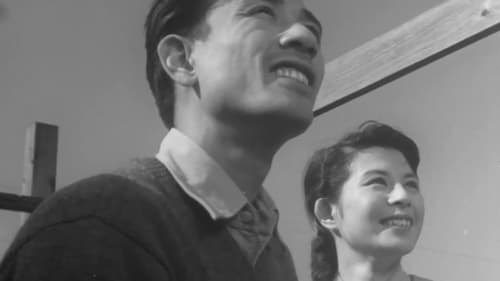
Natsuko
This drama of middle-class life in postwar Japan tells the story lower-middle-class workers in the city of Kawasaki, and their troubles and travails.
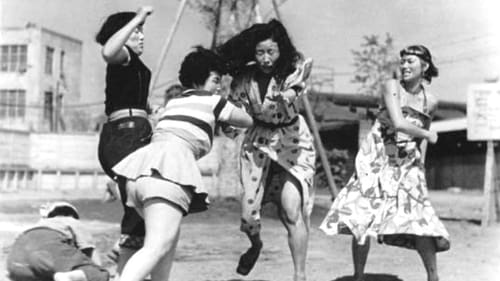
Tsuru, una mujer con problemas mentales, es protegida por Toku y Pinchan, dos hombres que viven en una villa de emergencia, en una zanja al costado de las vías del ferrocarril. La fábrica en la cual trabajaban ha sido cerrada por una huelga, por lo que ambos hombres gastan tiempo y dinero apostando en las carreras de bicicletas. Tsuru trabajaba en una fábrica textil, pero un grupo de jóvenes robó todo el dinero de su indemnización. La particular comunidad de la zanja incluye a Chu, un actor que también está un poco loco, y Hiromi, quien viste siempre un traje elegante y de quien se dice es la amante de un hombre poderoso.

Michiyo
This is a film about a Naval Air Corps Director who hates the war. Director Honda uses this film to ask the question "What is war?", showing the human bonds between Japan and America, Japanese military tactics which had little regard for life, and the attitude of Japanese military personnel who treated their actions as if they were just doing a job. This film contains few battle scenes, concentrating instead on the love stories of young officers and female members of the community in this lonely air base.
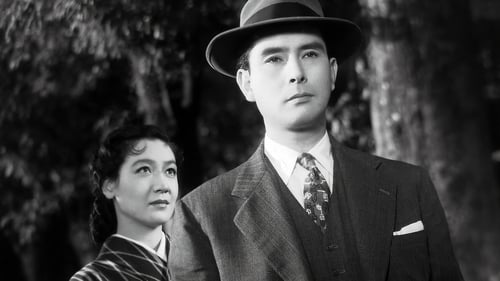
Aihara Fusako
Shuichi, hijo de Shingo, un próspero hombre de negocios de Tokio, vive con sus padres y su esposa Kikuki en una confortable casa. Por las tardes, se queda a menudo en la capital, bebiendo y divirtiéndose con su querida. Kikuko aguarda pacientemente su regreso a altas horas de la noche. Shingo, hombre sabio y de talante moderno, es consciente de los desenfrenos de su hijo y compadece a la solitaria Kikuko. (FILMAFFINITY)
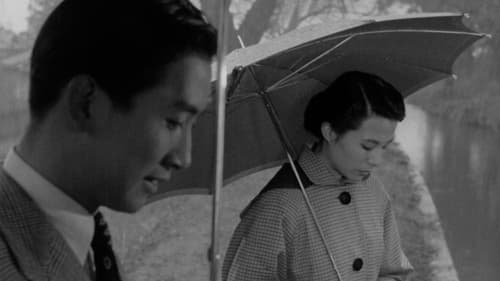
Un hombre triste y preocupado, Reikichi Mayumi (Masayuki Mori), encuentra un nuevo trabajo cinco años después del final de la Segunda Guerra Mundial. Él escribirá cartas de amor de otras personas. Sus ideas sobre el amor y sus principios personales serán probados cuando se reencuentra con su ex novia, Michiko (Yoshigo Kuga), una mujer con un pasado oscuro marcado por la guerra.

Harue
Story about a poor Japanese woman living near an American army base who resorts to prostitution.

Every year, at the festival, familiar merchants such as Toraemon, a magic trick, Tokubei, a blowgun, Kaji, acrobatics, and Unsaibo, a ritual, gather toward the port town.

Kayo Konishi
A story of unhappy youths and the perils of lack of sex education.
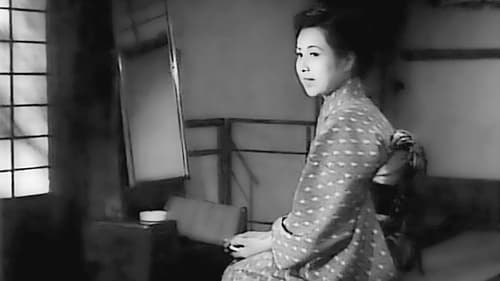
Eiko Matsuyama
Ten years into a marriage, the wife is disappointed by the husband's lack of financial success, meaning she has to work and can't treat herself and the husband finds the wife slovenly and mean-spirited: she neither cooks not cleans particularly well and is generally disagreeable. In turn, he alternately ignores her and treats her as a servant. Neither is particularly happy, not helped by their unsatisfactory lodgers. The husband is easily seduced by an ex-colleague, a widow with a small child who needs some security, and considers leaving his wife.

Mrs. Akamatsu
A married couple looking for an apartment move in with the husband's co-worker, a widower. The husband becomes jealous of the widower and his wife.
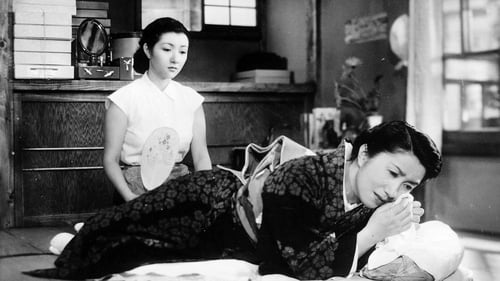
Ritsu
Kiyoko y su familia viven en el distrito central de Tokio. Tiene 23 años, es cobradora de autobús, pero anhela llegar a algo más en la vida. Su modelo es Katsuura, una inquilina que vive en su casa y que lee, pinta y escucha sus propios discos. Harta de las constantes rencillas de sus familiares por motivos económicos, se traslada a los suburbios y alquila una habitación a una anciana viuda.
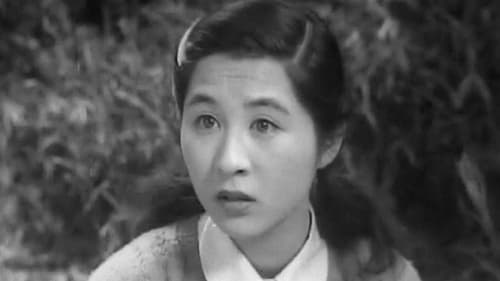
Noriko Kurihara
'Madre' es la historia de una madre pobre y trabajadora, con un marido enfermo, que se sacrifica para mantener a su familia en los suburbios de Tokio. La película define "Shomin Geki", un género cinematográfico japonés que presenta una representación realista de la clase baja económica, contada con elementos de comedia ligera y melodrama. Esta es la obra más conocida del director Mikio Naruse, aclamado por los historiadores de cine japoneses como un igual a Kurosawa, Ozu y Mizoguchi, pero subestimado en Occidente.

Once an average and seemingly ordinary Tokyo girl, she suddenly finds herself as a TV star owing to her discovery by a casting company, which noticed photographs that her cousin had sent. When another actress falls ill she is given the role instead. Her first film is a success propelling the young actress to popularity, her own fans, money and a house. While everything looks dandy from the outside not all is well within the family however.
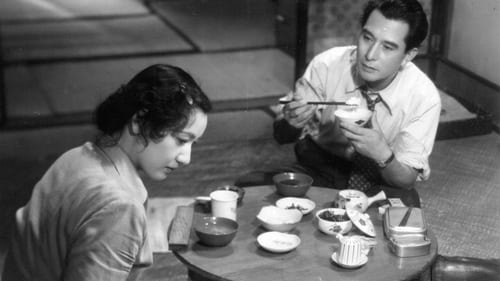
Keiko Yamakita
Situada poco después de la Segunda Guerra Mundial, El almuerzo cuenta las dificultades matrimoniales entre el salaryman Hatsunosuke y su mujer Michiyo. Se centra en la crisis emocional de una ama de casa aburrida. El tedio de su vida doméstica -consumida por la repetición de labores como cocinar y limpiar- aumenta con la visita de la sobrina de su marido, Satoko. Su llegada y la excesiva atención que le presta su marido, provocan el aumento de la infelicidad de Michiyo, forzada a enfrentarse con su futuro
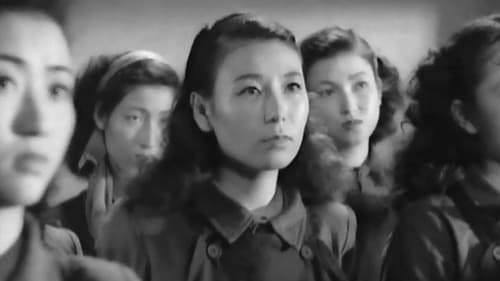
The critical establishment was clearly not prepared to accept a woman's prison film featuring former prostitutes recovering from venereal diseases, unwanted pregnancies, and estranged lovers. With its cat fights, hysterical tantrums, film noir lighting, and dramatic music, White Beast is indicative of the new influences of the Hollywood psychological thriller on Naruse. Caged (John Cromwell, 1950) initiated a cycle of women's prison movies in the United States that may or may not have been shown in Japan, but the stylistics of White Beast draw on the same paranoid woman's films and film noir conventions that preceded the American cycle.
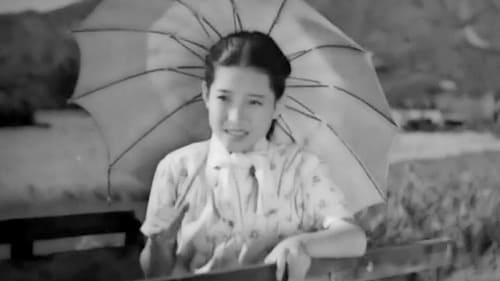
Three humorous love stories set in rural Japan.
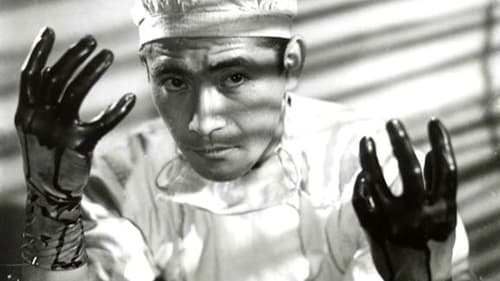
Takiko Nakada
Kyoji Fujisaki (Mifune), un joven cirujano militar, contrae la sífilis mientras cura a un herido durante la guerra. Acabada la contienda, la enfermedad será motivo de discusión entre el médico y su prometida. Finalmente, él no tendrá más remedio que enfrentarse a un grave dilema: aceptar, en su estado, las responsabilidades de la vida familiar o dedicarse en cuerpo y alma a la medicina.
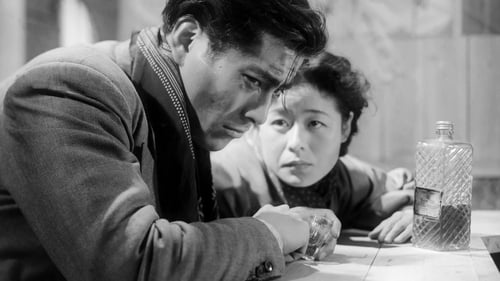
Miyo
Después de la Segunda Guerra Mundial (1939-1945). Crónica sobre la relación entre un gángster de la mafia japonesa ("yakuza"), enfermo de tuberculosis y el médico alcohólico que lo atiende.
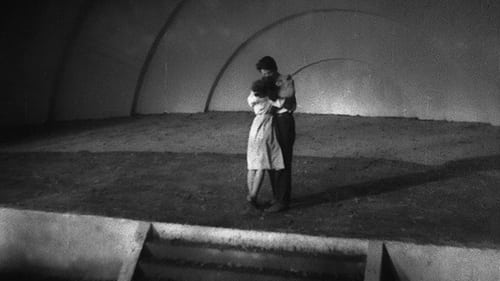
Masako
En tiempos de postguerra, dos enamorados pasan juntos un domingo, esperando que sea un día inolvidable. Están llenos de sueños e ilusiones e intentan ser felices. Pese a sus problemas y contratiempos, pese a las preocupaciones derivadas de los bombardeos atómicos de Hiroshima y Nagasaki, su amor les permite concebir ilusiones sobre un futuro mejor.
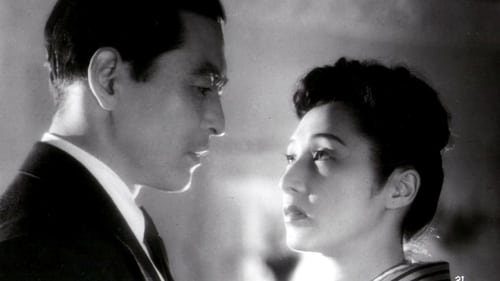
Kimura
A romance with political overtones about the relationship of a sheltered bourgeois woman and a doctor who devotes himself to caring for the poor. Over a ten-year period - from 1936 through the war - they find each other and are separated again by the events of those tumultuous days.
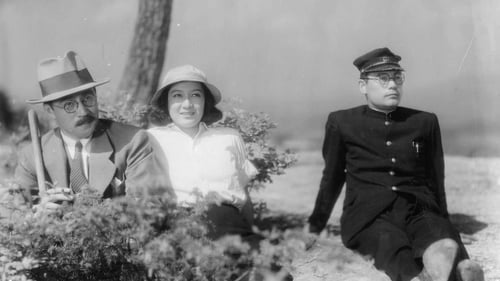
Lady
Yukie, hija de un profesor universitario, se queda conmocionada cuando su padre es expulsado de su cátedra por sus enseñanzas políticas, pero mucho más aún cuando su novio es arrestado y ejecutado bajo la acusación de espionaje.

Lord for a Night is a 1946 Japanese film directed by Teinosuke Kinugasa.

Yoshiko Okamoto, Elder Sister
Dos hermanas, una bailarina y la otra supervisora de guiones de un gran estudio de cine, se ven envueltas en una huelga de trabajadores del ferrocarril.
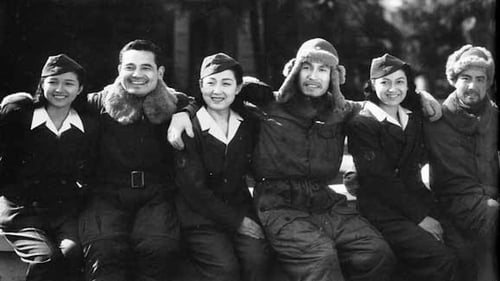
The story of an airport and its air traffic control crew in a remote and northern Japanese town. Three of the air traffic controllers are female with one of them working with her dead fiancé's sister. The engaged man had gone to war and never returned.
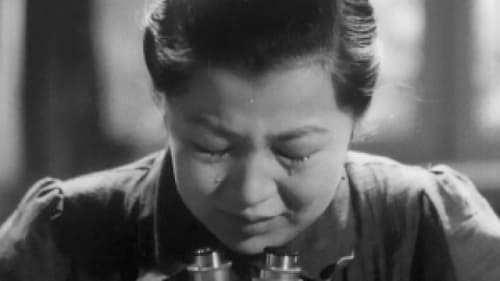
Student worker (uncredited)
Durante la Segunda Guerra Mundial (1939-1945), varias mujeres trabajan en una empresa de instrumentos de óptica. Bajo el control paternalista del director de la fábrica, luchan para conseguir la máxima calidad en difíciles condiciones. A pesar de las enfermedades y los problemas con los que se enfrentan, viven entregadas a su trabajo y a la causa de su país. El jefe de equipo, cuya mujer se está muriendo, se esforzará por dar ejemplo a los demás mostrando una voluntad de acero.









































